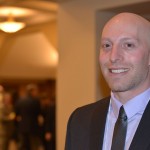The panel discussion will center on S. 4360: Counseling Not Criminalization in Schools Act. Introduced by Senator Murphy, S. 4360 is a bill to reduce police presence and increase resources for counseling in schools, with aims “to divert Federal funding away from supporting the presence of police in schools and toward evidence-based and trauma informed services that address the needs of marginalized students and improve academic outcomes” in order to “create safe and inclusive schools for all students.
In-person, hybrid, remote, and/or homeschool – the options for K- through-12 schooling during the pandemic are complicated, each with their own pros and cons. UConn Today asked psychologist Sandra Chafouleas, Board of Trustees Distinguished Professor and Neag Endowed Professor in the Department of Educational Psychology and co-director of the UConn Collaboratory on School and Child Health, about the importance of social and emotional health for children and their caregivers, particularly this year.
Kathleen Lynch, a professor at UConn’d Nead School of Education, noted that research on the summer slide — and how it affects different groups of students — remains mixed. “I do think some caution is warranted in making projections about COVID learning losses extrapolating from summer learning loss studies,” she said.
Sandra Chafouleas, a Board of Trustees Professor in UConn’s Neag School of Education, said she has seen more openings than ever before for school nurse and psychologist positions. Districts have become more focused on supporting students’ physical and mental health, she said.
A leadership program for undergraduate women at UConn has proven so successful the funder has donated $1.2 million to extend it for at least three years.
The grant provides scholarships and a transformative experience to several juniors through the BOLD Women’s Leadership Network. The BOLD program cultivates courageous leadership and career success in young women during college and after they complete their studies.
The University of Connecticut Administrator Preparation Program (UCAPP) is a school leadership preparation program in the Neag School of Education. UCAPP’s mission is to prepare highly qualified school leaders to promote equity and excellence in schools throughout Connecticut. Join an upcoming information session.
CSCH Program Manager Helene Marcy interviews CSCH Affiliate Jesse Mala about his research looking at the relationship between sport & physical activity and working memory and perceptions of school climate among youth living in poverty.
Todd Campbell, one of the Neag instructors, tweeted that in the first session, forty participants recorded 112 data points from across the state in less than twenty minutes.
“The biggest barrier to remote learning is having a good setup, that is, access to materials and technology…as well as resources such as uninterrupted space and time for learning,” said Sandra Chafouleas, professor of educational psychology and Board of Trustees Distinguished Professor at UConn.
Michigan native Jeremy Landa, formerly a high school social studies teacher and swimming coach, arrived at UConn in the fall of 2015 as one of the Neag School’s first-ever Dean’s Doctoral Scholars. Having recently defended his dissertation in education policy, he now reflects on his experience as a doctoral student, sharing some of his learnings about the Ph.D. process, and himself, along the way.



